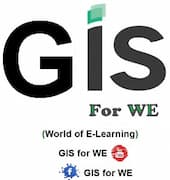Trend Tool in ArcToolbox
أداة الاتجاه
ArcMap ArcGIS
كيفية استخدام أداة الاتجاه في ArcToolbox ArcMap ArcGIS ؟؟
Trend Tool, Raster Interpolation Toolset, 3D Analyst Toolbox
Trend
Interpolates a raster
surface from points using a trend technique.
يقحم السطح النقطي من النقاط باستخدام تقنية الاتجاه.
1. Input point features ميزات نقطة الإدخال
The input point features
containing the z-values to be interpolated into a surface raster.
معالم نقطة الإدخال التي تحتوي على قيم z المراد استيفائها في خطوط المسح السطحي.
2. Z value field حقل قيمة Z
The field that holds a
height or magnitude value for each point.
This can be a numeric
field or the Shape field if the input point features contain z-values.
If the regression type
is Logistic, the values in the field can only be 0 or 1.
الحقل الذي يحتوي على قيمة ارتفاع أو مقدار لكل نقطة.
يمكن أن يكون هذا حقلاً رقميًا أو حقل الشكل إذا كانت معالم نقطة الإدخال تحتوي على قيم z.
إذا كان نوع الانحدار لوجستيًا ، فيمكن أن تكون القيم في الحقل 0 أو 1 فقط.
3. Output raster النقطية الإخراج
The output interpolated
surface raster.
It is always a
floating-point raster.
الناتج محرف النقطية السطحية.
إنها دائمًا نقطية عائمة.
4. Output cell size (optional) حجم خلية الإخراج (اختياري)
The cell size of the
output raster that will be created.
This parameter can be
defined by a numeric value or obtained from an existing raster dataset. If the
cell size hasn't been explicitly specified as the parameter value,
the
environment cell size value will be used if specified; otherwise, additional
rules will be used to calculate it from the other inputs. See the usage for
more detail.
حجم خلية البيانات النقطية الناتجة التي سيتم إنشاؤها.
يمكن تحديد هذه المعلمة بقيمة عددية أو الحصول عليها من مجموعة بيانات نقطية موجودة. إذا لم يتم تحديد حجم الخلية صراحة كقيمة المعلمة ،
سيتم استخدام قيمة حجم خلية البيئة إذا تم تحديدها ؛ خلاف ذلك ، سيتم استخدام قواعد إضافية لحسابها من المدخلات الأخرى. انظر الاستخدام لمزيد من التفاصيل.
5. Polynomial order (optional) أمر متعدد الحدود (اختياري)
The order of the
polynomial.
This must be an integer
between 1 and 12. A value of 1 will fit a flat plane to the points, and a higher
value will fit a more complex surface. The default is 1.
ترتيب كثير الحدود.
يجب أن يكون هذا عددًا صحيحًا بين 1 و 12. وستلائم القيمة 1 المستوى المسطح للنقاط ، وستلائم القيمة الأعلى سطحًا أكثر تعقيدًا. الافتراضي هو 1.
6. Type of regression (optional) نوع الانحدار (اختياري)
The type of regression
to be performed.
·
LINEAR—Polynomial regression is performed to fit a least-squares
surface to the set of input points. This is applicable for continuous types of
data.
·
LOGISTIC—Logistic trend surface analysis is performed. It
generates a continuous probability surface for binary, or dichotomous, types of
data.
نوع الانحدار الذي يتعين القيام به.
· LINEAR - يتم إجراء انحدار متعدد الحدود لملاءمة سطح المربعات الصغرى لمجموعة نقاط الإدخال. هذا ينطبق على أنواع البيانات المستمرة.
· LOGISTIC - يتم إجراء تحليل سطح الاتجاه اللوجستي. يقوم بإنشاء سطح احتمال مستمر لأنواع البيانات الثنائية أو ثنائية التفرع.
7. Output RMS file (optional)
File name for the output text file that contains information about the RMS error and the Chi-Square of the interpolation.The extension must be .txt.
اسم الملف لملف نص الإخراج الذي يحتوي على معلومات حول خطأ RMS و Chi-Square للاستيفاء. يجب أن يكون الامتداد .txt.
اليك صفحه ومجموعة على الفيس بوك لتعلم أكثر بما يخص نظم المعلومات الجغرافية (GIS) و برنامج ArcGIS Pro من خلال هذه الروابط:





تعليقات
إرسال تعليق